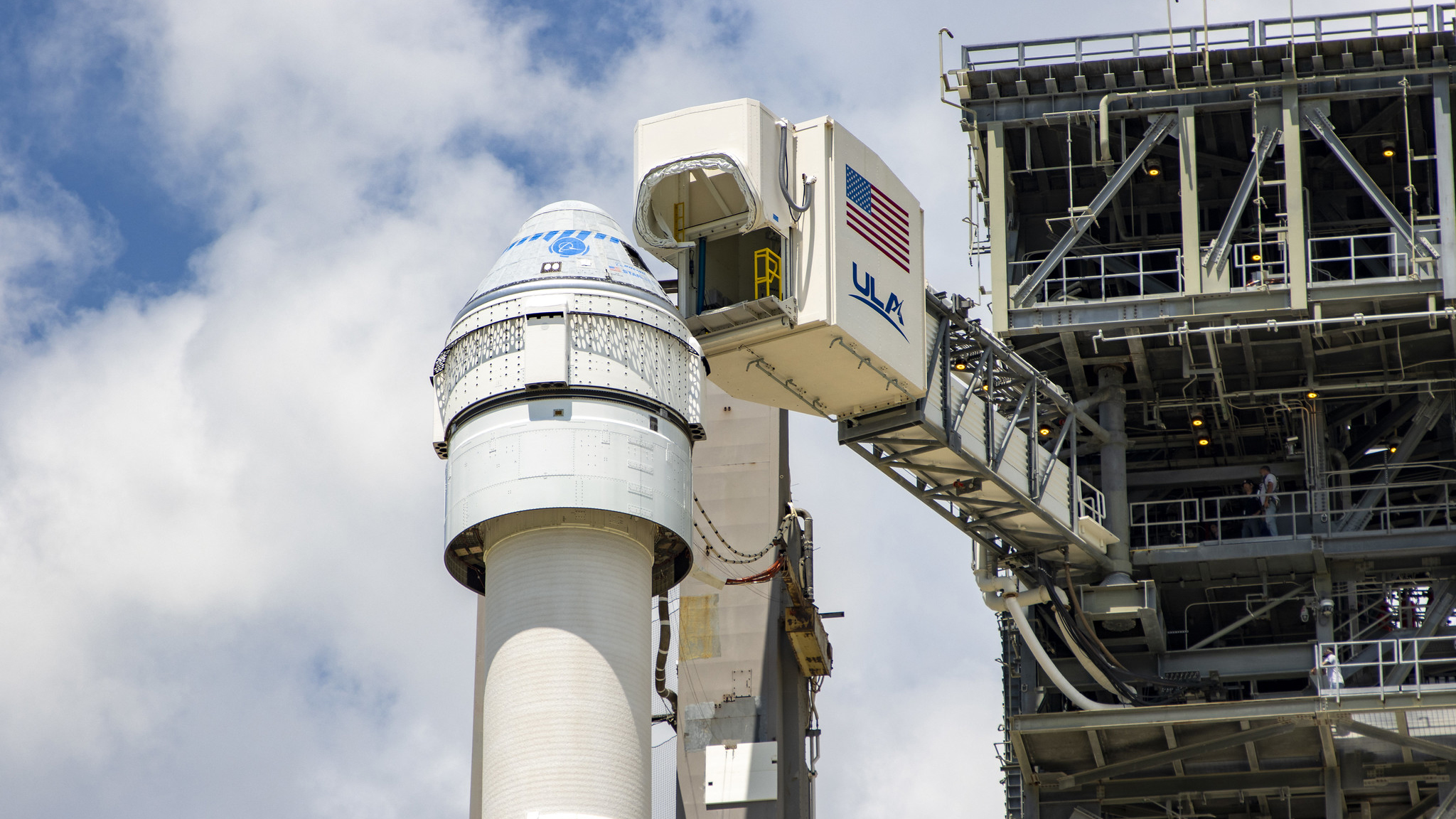Boeing's Starliner still hoping for August launch despite technical troubles

Boeing is still hoping to achieve an August launch date for its Starliner capsule amid continuing technical problems with the spacecraft.
Last week, Boeing delayed a crucial uncrewed test launch for its Starliner astronaut taxi after engineers detected an issue with valves in the vehicle's propulsion system that didn't open as designed during prelaunch checks. Now, the company has revealed that they found issues with 13 valves and, since the problem was first detected on Aug. 3, mission teams have restored functionality to seven of those 13 valves, according to a statement from Boeing. They added that they are working towards an August launch for the vehicle.
"Boeing is working a systematic plan to open the affected valves, demonstrate repeatable system performance, and verify the root cause of the issue before returning Starliner to the launch pad for its Orbital Flight Test-2 mission," company officials wrote in the same statement, adding that Boeing is also "assessing multiple launch opportunities in August and will work with NASA and the United Launch Alliance to confirm those dates when the spacecraft is ready."
Related: Everything you need to know about Boeing's Starliner OFT-2 mission
"Boeing has completed physical inspections and chemical sampling on the exterior of a number of the affected valves, which indicated no signs of damage or external corrosion," officials wrote in the statement. "Test teams are now applying mechanical, electrical and thermal techniques to prompt the valves open. Seven of the 13 valves are now operating as designed, with inspection and remediation of the remaining affected valves to be performed in the days ahead."
After engineers initially detected the valve issue on Aug. 3, the company hoped to possibly resolve it in time for an Aug. 4 launch. However, on Aug. 4 Boeing announced that the launch would be delayed further while engineers ensured Starliner's readiness.
Boeing is readying Starliner to fly as part of the company's Orbital Flight Test-2 (OFT-2) mission, an uncrewed test flight to and from the International Space Station. Starliner is Boeing's crew capsule that it developed with support from NASA's Commercial Crew Program to ferry astronauts to and from orbit as SpaceX does with its Crew Dragon craft.
Get the Space.com Newsletter
Breaking space news, the latest updates on rocket launches, skywatching events and more!
As part of the OFT-2 mission, Starliner will launch aboard a ULA Atlas V rocket, rendezvous and dock with the space station, unload cargo and stay docked for between 5 and 10 days and then return home to touch down on land with the assistance of parachutes.
This is Starliner's second attempt at an uncrewed test flight. The first OFT mission in December 2019 flight didn't go as planned and Starliner wasn't able to connect with the space station, instead making an early landing back on Earth.
Following the success of OFT-2, Boeing plans to begin launching NASA astronauts aboard the vehicle. Prior to recent delays, Boeing had said it will start sending up crewed launches by the end of this year; the company has not commented whether this goal still holds.
Email Chelsea Gohd at cgohd@space.com or follow her on Twitter @chelsea_gohd. Follow us on Twitter @Spacedotcom and on Facebook.
Join our Space Forums to keep talking space on the latest missions, night sky and more! And if you have a news tip, correction or comment, let us know at: community@space.com.

Chelsea “Foxanne” Gohd joined Space.com in 2018 and is now a Senior Writer, writing about everything from climate change to planetary science and human spaceflight in both articles and on-camera in videos. With a degree in Public Health and biological sciences, Chelsea has written and worked for institutions including the American Museum of Natural History, Scientific American, Discover Magazine Blog, Astronomy Magazine and Live Science. When not writing, editing or filming something space-y, Chelsea "Foxanne" Gohd is writing music and performing as Foxanne, even launching a song to space in 2021 with Inspiration4. You can follow her on Twitter @chelsea_gohd and @foxannemusic.









